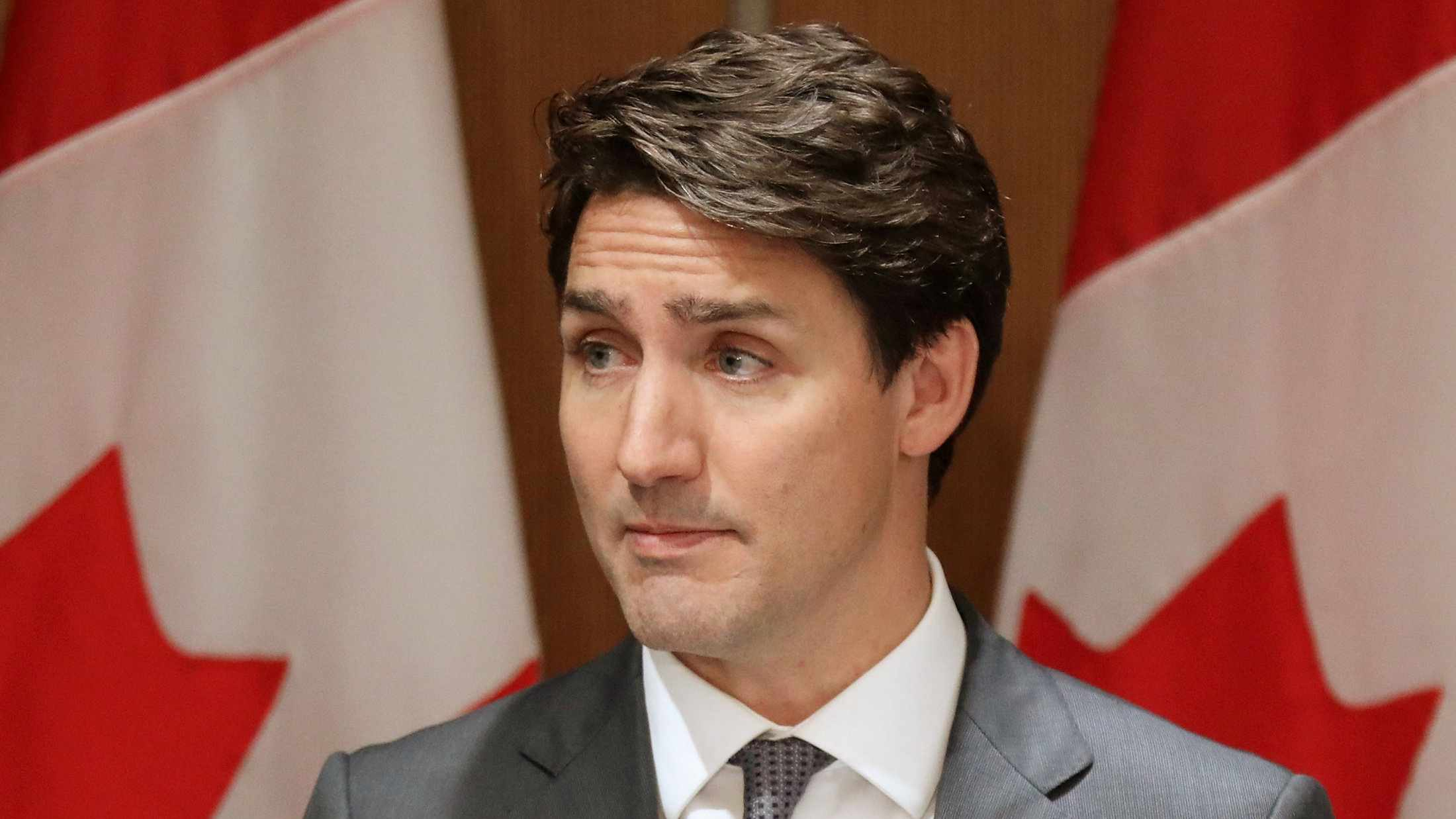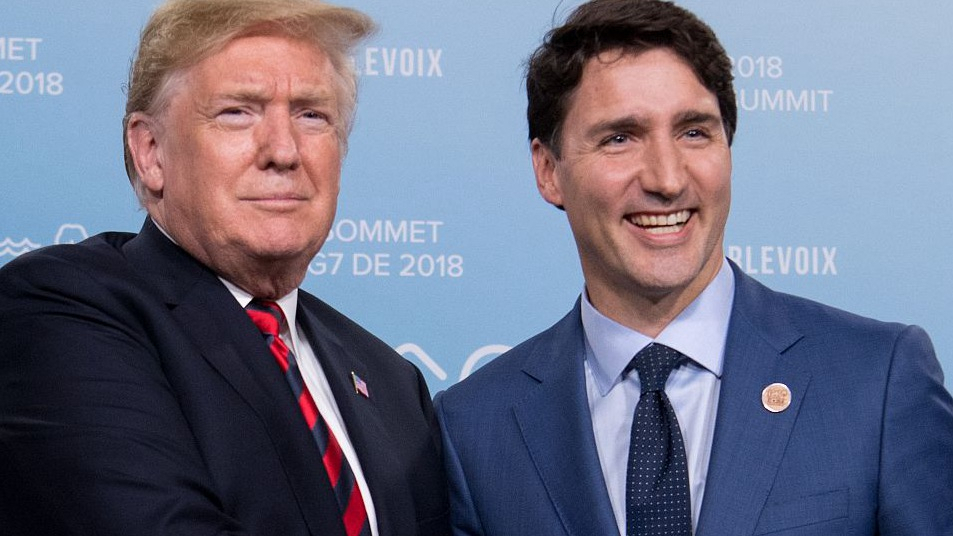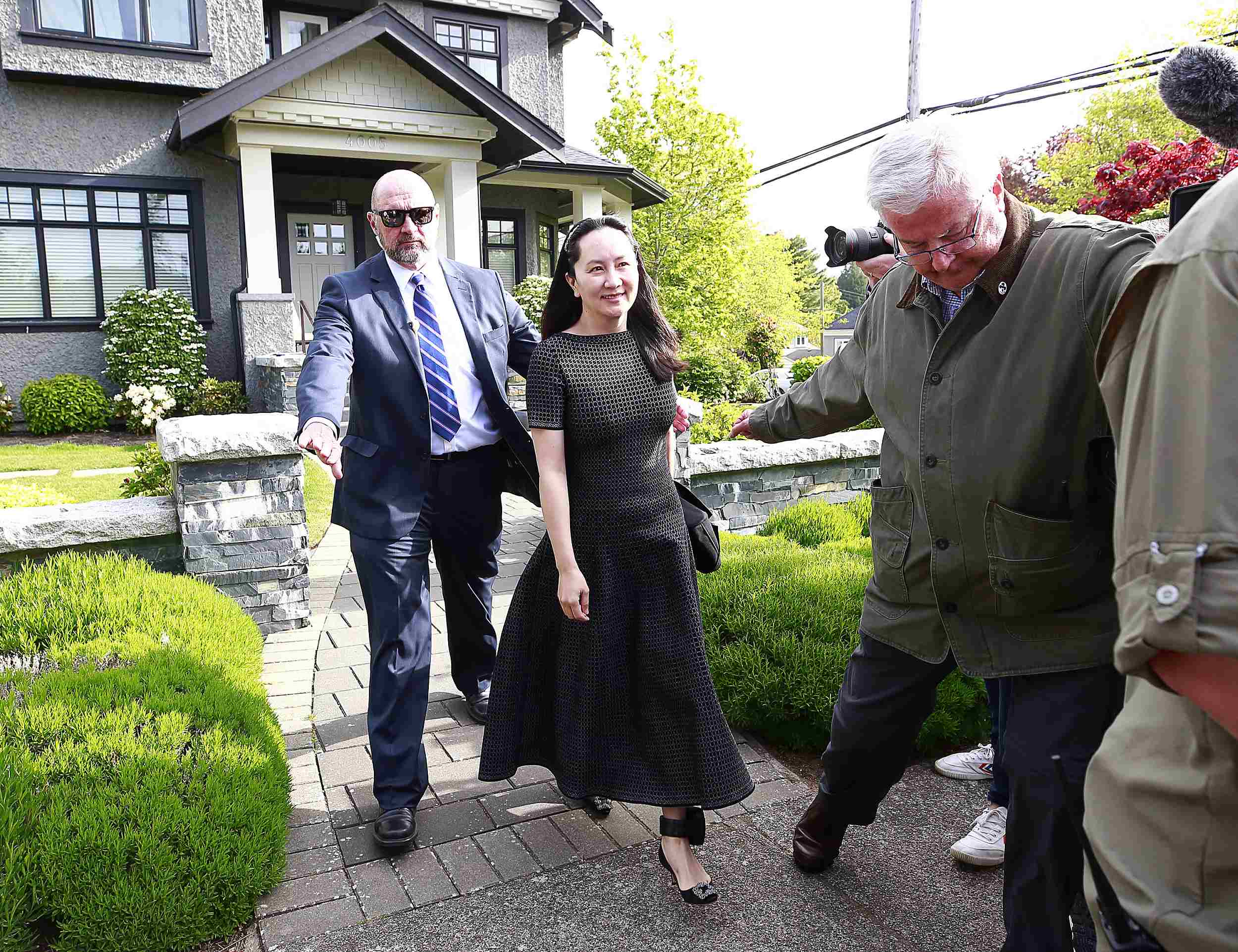

Editor's note: Ken Moak, who taught economic theory, public policy and globalization at the university level for 33 years, co-authored a book titled "China's Economic Rise and Its Global Impact" in 2015. The article reflects the author's opinion and not necessarily the views of CGTN.
There is little doubt that Canadian Prime Minister Justine Trudeau is under tremendous pressure from Canadian businesses and opposition political parties to bring the two Canadians charged with spying in China home. They believe the two "Michaels" – Michael Kovrig and Michael Spavor were a tit-for-tat for Canada's arrest of Meng Wanzhou at the behest of the U.S.
Trudeau might also be anxious to reset the China-Canada relationship on which he spent significant political capital to maintain because of China's potential importance to the Canadian economy. Being the country's second-largest trade partner, China has the market and financial resources to invest in Canadian resources industries. Establishing free trade and bilateral investment agreements with the Asian power could bring enormous benefits to Canada.
Indeed, the liquefied natural gas (LNG) plant being built in Kitimat, British Columbia and the approval of the Kinder Morgan pipeline to Canada's west coast were in large part to serve the Chinese market. With PetroChina's 15 percent stake, the LNG plant is virtually guaranteed financial success. China resetting the relationship could also wean Canada away from over-dependence on the U.S., which already is the destination of over 75 percent of Canadian export.
Unfortunately, the U.S. derailed the China-Canada relationship by pressuring Canada to arrest Ms. Meng, sinking the relationship to its lowest level since the two countries established diplomatic relations by his father Pierre Elliott Trudeau in 1970. The deteriorating relationship put the Canadian economy in a less bright position and reduces the chances of getting back the two Canadians detained by China on spying charges.

U.S. President Donald Trump (L) and Canadian Prime Minister Justin Trudeau hold a meeting on the sidelines of the G7 summit, La Malbaie, Quebec, Canada, June 8, 2018. /VCG Photo
Both Trudeau and Canadian Foreign Minister Chrystia Freeland sought meetings with their Chinese counterparts after Ms. Meng’s arrest and the detention of two Canadians, but to no avail. Their attempts to recruit “like-minded” countries to pressure China into releasing the “two Michaels” had the opposite effect, which hardened China’s position.
With the coming of the G20 summit, it was reported that Trudeau had asked U.S. President Donald Trump to take up Canada’s case with Chinese President Xi Jinping at his G20 meeting with Xi in Japan. Even if Trump agreed, how much he is willing to help or can deliver is unclear.
Trump’s policies and U.S. domestic politics might get in the way
Trump initiated and then escalated the trade war with China, not to mention that it was the U.S. that put Canada in this predicament after all. What’s more, arresting Ms. Meng might be Trump’s “ace card” in getting a good deal from China. He was the man who threatened to impose tariffs on all Chinese imports, banned China’s telecom companies from the U.S. market, pressured allies to do the same and said that he was in no hurry to end the trade war.
Moreover, the U.S. Congress seems to be more hawkish on China than Trump. Democrat and Republican lawmakers are united on foreign policies, particularly against countries deemed a threat to U.S. national security. Both political parties are determined to maintain U.S. global dominance literally at any cost.
And as explained in past articles, Trump’s tariffs, banning of telecom equipment from the U.S. and barring U.S. firms from selling technology to China are not about trade deficits, but the U.S. determination to prevent the Asian giant from realizing a position that could challenge U.S. supremacy. The ideologically-motivated “China threat” rhetoric cannot be easily erased.

Huawei's financial chief Meng Wanzhou leaves her home in Vancouver, British Columbia, Canada, May 8, 2019. /VCG Photo
In light of Trump’s own doing and the internal obstacles, one can be forgiven for suggesting the U.S. president might not be able or willing to help his “friend” Trudeau to bring the two detained Canadians back to Canada.
That said, if Trump helps Trudeau, it is because doing that is in his and the U.S.' interest.
Helping Trudeau could create an opportunity
Because it is in his interest and that of the U.S. to undo what the US Justice Department did to Canada, Trump could take advantage of the opportunity to create an opening in ending the trade war. That, in turn, could reverse the U.S. economy’s downward trajectory and increase Trump’s prospects of winning a second term. Trump would be seen as a trusted and valuable friend and an ally in the eyes of Canadians.
Moreover, if Trump could negotiate a trade agreement with China, the world will see him as a statesman and “savior” of the global economy, albeit that he initiated the conflict. Ending the trade war could also, to some extent, revive U.S. global leadership.
Ending the trade war and reversing downward economic growth could increase his popularity at home, thus enabling Trump to defy the anti-China crowd at home. And sustaining long-term economic growth and stability would genuinely “Make America Great Again”.
(If you want to contribute and have specific expertise, please contact us at opinions@cgtn.com.)

Copyright © 2018 CGTN. Beijing ICP prepared NO.16065310-3
Copyright © 2018 CGTN. Beijing ICP prepared NO.16065310-3